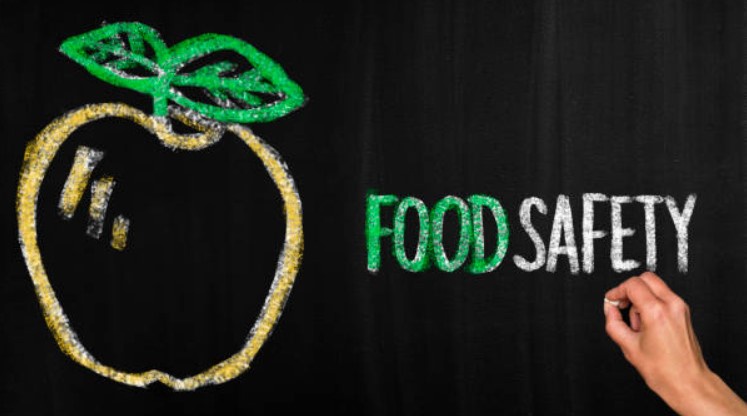When it comes to food businesses, ensuring proper hygiene practices is of utmost importance. Customers rightfully expect the food they consume to be safe and free from harmful contaminants. To meet these expectations and maintain high standards of food safety, obtaining a hygiene certificate is essential.
In this article, we will delve into the significance of a hygiene certificate, explore its benefits for businesses and consumers, and provide a step-by-step guide on how to obtain one. Whether you are a restaurant owner, a food handler, or someone interested in the food industry, understanding the importance of a hygiene certificate is crucial for the well-being of everyone involved.
The Importance of a Hygiene Certificate
Imagine walking into a restaurant and being greeted by a prominently displayed hygiene certificate on the wall. What does it tell you as a customer? It indicates that the establishment takes food safety seriously, that the staff is trained in proper hygiene practices, and that your health and well-being are a top priority.
A hygiene certificate, also known as a food handler's certificate or food safety certificate, is an official document issued to individuals who have completed a food safety training program. This certificate serves as proof that the recipient has gained the necessary knowledge and skills to handle and prepare food safely.
Benefits for Businesses
For food businesses, obtaining a hygiene certificate offers several advantages. Firstly, it demonstrates a commitment to food safety, instilling confidence in customers and building a positive reputation. Customers are more likely to trust and return to establishments that prioritize their health and well-being.
Secondly, businesses with certified staff are better equipped to handle health inspections and regulatory audits. Compliance with food safety regulations is a legal requirement, and a hygiene certificate is a tangible way to show adherence to these standards.
Furthermore, investing in food safety training and obtaining hygiene certificates for employees can lead to a decrease in foodborne illnesses and incidents. This, in turn, reduces the risk of legal liabilities and potential damage to the business's reputation.
Benefits for Consumers
For consumers, dining at an establishment where staff members hold hygiene certificates brings peace of mind. Knowing that the individuals handling their food have undergone proper training and are well-versed in safe food handling practices builds trust and confidence in the food service industry.
A hygiene certificate also indicates that the food business takes hygiene seriously and is dedicated to ensuring the safety and well-being of its patrons. Consumers are more likely to choose establishments that prioritize food safety, leading to healthier choices and reduced risks of foodborne illnesses.
Obtaining a Hygiene Certificate
Now that we understand the importance of a hygiene certificate, let's explore how individuals can obtain one.
Step 1: Find an Accredited Training Provider
The first step is to find an accredited training provider that offers food safety training courses. Look for reputable organizations or institutions that are recognized for their expertise in the food industry and have a history of providing comprehensive and up-to-date training.
Step 2: Enroll in the Training Course
Once you have identified a suitable training provider, enroll in their food safety training course. These courses are designed to educate participants about the principles of food safety, proper food handling techniques, and best practices to prevent food contamination.
Step 3: Attend the Training Sessions
Attend all the training sessions and actively participate in the learning process. Pay close attention to the content provided, ask questions, and seek clarification on any concepts that may be unclear.
Step 4: Take the Examination
After completing the training, you will need to take an examination to assess your knowledge and understanding of food safety principles. The exam may be conducted online or in-person, depending on the training provider.
Step 5: Obtain Your Hygiene Certificate
Upon successfully passing the examination, you will receive your hygiene certificate. This certificate is a validation of your food safety knowledge and demonstrates your commitment to maintaining high standards of hygiene in the food industry.
Conclusion
In conclusion, obtaining a hygiene certificate is a crucial step for individuals and businesses in the food industry. It ensures that food handlers are equipped with the necessary knowledge and skills to handle and prepare food safely, leading to a safer dining experience for consumers.
For businesses, a hygiene certificate enhances their reputation, builds customer trust, and facilitates compliance with food safety regulations. For consumers, it provides assurance that the food they consume is prepared and handled with care.
So, whether you are a food business owner or an aspiring food handler, investing in food safety training and obtaining a hygiene certificate is a decision that benefits everyone involved. It fosters a culture of food safety, promotes healthier choices, and contributes to a thriving and safe food service industry.
Obtaining a hygiene certificate is not just a formality; it is a responsibility towards the well-being of your customers and the success of your business. Take the first step today and embark on a journey of food safety and excellence.


No comments yet